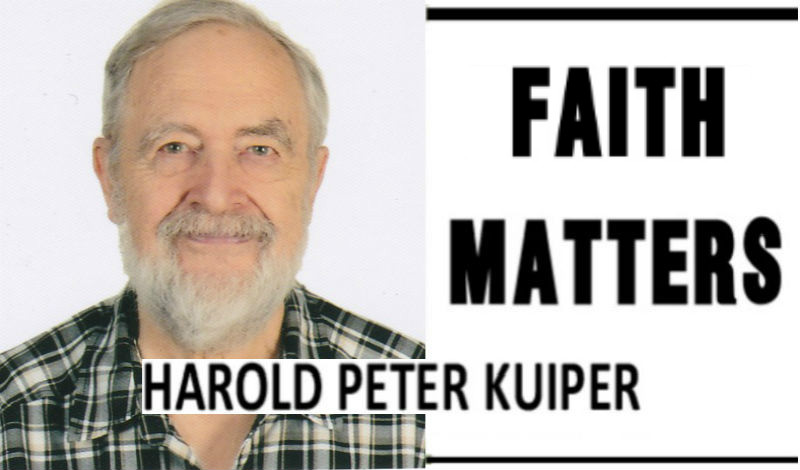In the Spring of 1986 I awoke with this poem in my mind:
On Prayer: After Psalm 23
Down in the valley,
where shadows of life and death dance,
we dwell and walk and roam.
Here, where no lot abides,
we have no lasting city,
no title to God.
And so we pray,
not like Joshua,
reaching up to stop the sun,1
but Thomas-like,
reaching for the reassuring wounds.2
And sometimes like Peter,
praying for first place,
forsaking his only place,
but finding himself no place,
until his Lord restored him.3
Who knows what fire may warm our hands,
But singe our souls?
May our wounded God grant something else:
A glimpse of the valley’s end,
and of us there, looking back,
at lamps He lit and hands we clasped
along the road.
And then forward to our Shepherd’s
smiling face and beckoning,
nail-pierced hands. –HPK
1, Joshua 10: 12. 2, John 20: 25-28. 3, John 21
Recently I saw a report on the effects of prayer, based on hundreds, even thousands, of studies done at secular universities and Yale Medical School. Along with meditation and worship, prayer was found in longitudinal studies to lengthen life, reduce blood pressure and stress, free one from anxiety, strengthen the immune system, help one forgive, to sleep, increase in wisdom, and even diminish pain!
So it looks like Jesus and other biblical teachers knew what they were talking about when they stressed the importance of prayer. Jesus said, I am the vine, you are the branches. Abide in me, and bear fruit, for apart from me you can do nothing. (Doubtless of spiritual importance.) And, Ask what you will, and it will be done for you. (John 15). St. Peter said Cast all your anxiety (“cares”) on Him, for he cares for you. (I Peter 5: 7) And St. Paul urged, (Philippians 4) The Lord is at hand. Have no anxiety about anything, but in everything with prayer and thanksgiving let your requests be known to God, and the peace of God, which transcends understanding, will fill your hearts and minds in Christ Jesus.
The secular studies of prayer reported that there are wrong ways to pray. For instance, prayers that last less than 5 minutes may do more harm than good. The Bible also, in the Psalms, gives a number of imprecatory prayers, where the fearful and angry psalmist prays that God will bring down curses on his enemies (e.g., Pss. 35, 109). Remember, the Old Testament writers had not yet witnessed the crucifixion, even if they prayed for forgiveness for themselves (e.g., Pss. 32, 51). (But the Psalms generally are filled with praise; the favorite of my grandmother, mother and me is 103.)
So, what if I don’t know how to pray? It’s simple, really. You just talk to God, pour out your heart to Him*, and listen: take the time right away to tune into the Holy Spirit, at least 5 minutes, and be attentive to possible answers coming later. E.g., Oh God, are you real? I need you in my life, come and save me, forgive me my sins, free me from my sinful ways. Thank you for dying for me, Jesus. Now make me your child and disciple; teach me how to love.
Such a prayer is central to being “saved”, however you define salvation.
Here’s a formula you might also want to follow: ACTS. A=adoration, praise to God. C=confession of sins, but also anything of doubt or fear. T=thanksgiving. (Scriptures again and again enjoin us to be thankful.) S=supplication, or intercession for others. Even Jesus on the cross prayed, including for his enemies. Before that, when he confronted Peter with the fact that he would deny him before the cock crowed, he said, “But I have prayed for you, that your faith will not fail.” (Luke 22: 32)
Lots of research and testimonies show that prayer makes a difference. It also is key for the brain being at its best, while failing to pray means the brain will be stuck in sinful habits and negative thoughts, and so we’ll be lost. When we pray we are activating the reticular activating system, which is like a computer which we program. That’s why it’s important to start each morning in prayer.
*My late wife, the former Florence Clapp from Bontoc, was sitting in a dean’s office at Leslie College in Boston. This lady told her, “I’m sorry, Florence, your scholarship is only a partial one. You’ll need to find a part-time job.” So Florence went outside and said “You know I’m mad at you, God” (because she had experienced some real disappointments, real hurts in her life and her career in His service she had quit praying and going to church) but please help me. I need a job.” Immediately she heard a whisper, “Turn around and go talk to the lady you just talked to.” So she did. Soon as she sat down at the dean’s desk the phone rang. It was the Dean of Women at nearby Wellesley College looking for a den mother for the women’s dorm! So Florence had her part time job, and was able to complete her M. A. degree. She got her faith back, and later met me. . . (The Lord helped keep us together for 47 years.)















